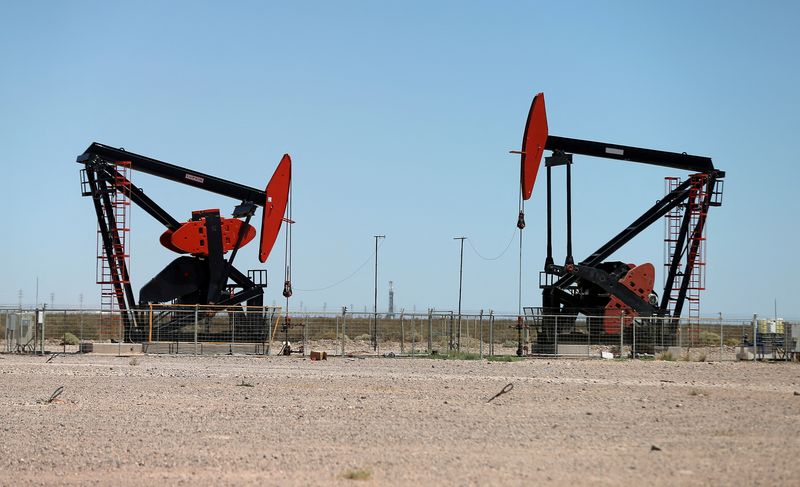By Anmol Choubey and Brijesh Patel
(Reuters) – Oil prices could stagnate in 2025 as economic weakness in China clouds the demand picture and ample global supply outweighs support from an expected postponement of a planned OPEC+ production increase, a monthly Reuters poll showed on Friday .
The survey of 41 economists and analysts predicted oil prices would average $74.53 per barrel in 2025, up from a forecast of $76.61 in October.
That marks the seventh consecutive downward revision to the 2025 consensus for the global benchmark, which has averaged $80 a barrel so far in 2024.
Oil prices are expected to average $70.69 per barrel in 2025, lower than last month’s forecast of $72.73.
Sentiment among oil traders “has turned very negative due to concerns about the global economy, especially the Chinese economy and demand growth, and concerns about OPEC+’s ability to match supply with demand,” according to Stratas Advisors- President John Paisie.
Earlier this month, OPEC lowered its forecast for global oil demand growth this year and next, highlighting weakness in China, India and other regions.
Oil demand in top consumer China is expected to rise modestly due to recent stimulus measures, but structural economic challenges and the rise of new energy vehicles could limit growth, analysts say.
The poll showed that global oil demand would grow by 1 million to 1.5 million barrels per day by 2025.
The International Energy Agency, meanwhile, expects global oil supply to exceed demand by 2025, even if cuts continue from OPEC+, which includes the Organization of the Petroleum Exporting Countries and allies such as Russia.
“We expect OPEC+ to announce another three-month extension of cuts until April 2025,” said Kim Fustier, head of European Oil & Gas Research at HSBC.
“We do not rule out OPEC+ delaying production increases until later in the year, given oil prices are in the low $70s/b.”
The group, which produces about half the world’s oil, will meet on December 5 to determine production policy for the first months of 2025.

Most survey respondents said ongoing geopolitical tensions and possible tougher sanctions on Iran by the Trump administration could provide only limited support to oil prices amid subdued demand.
“Iranian exports could slow, leaving room for a surge from other producers, so the net impact will be limited,” said Ole Hansen, head of commodity strategy at Saxo Bank.


